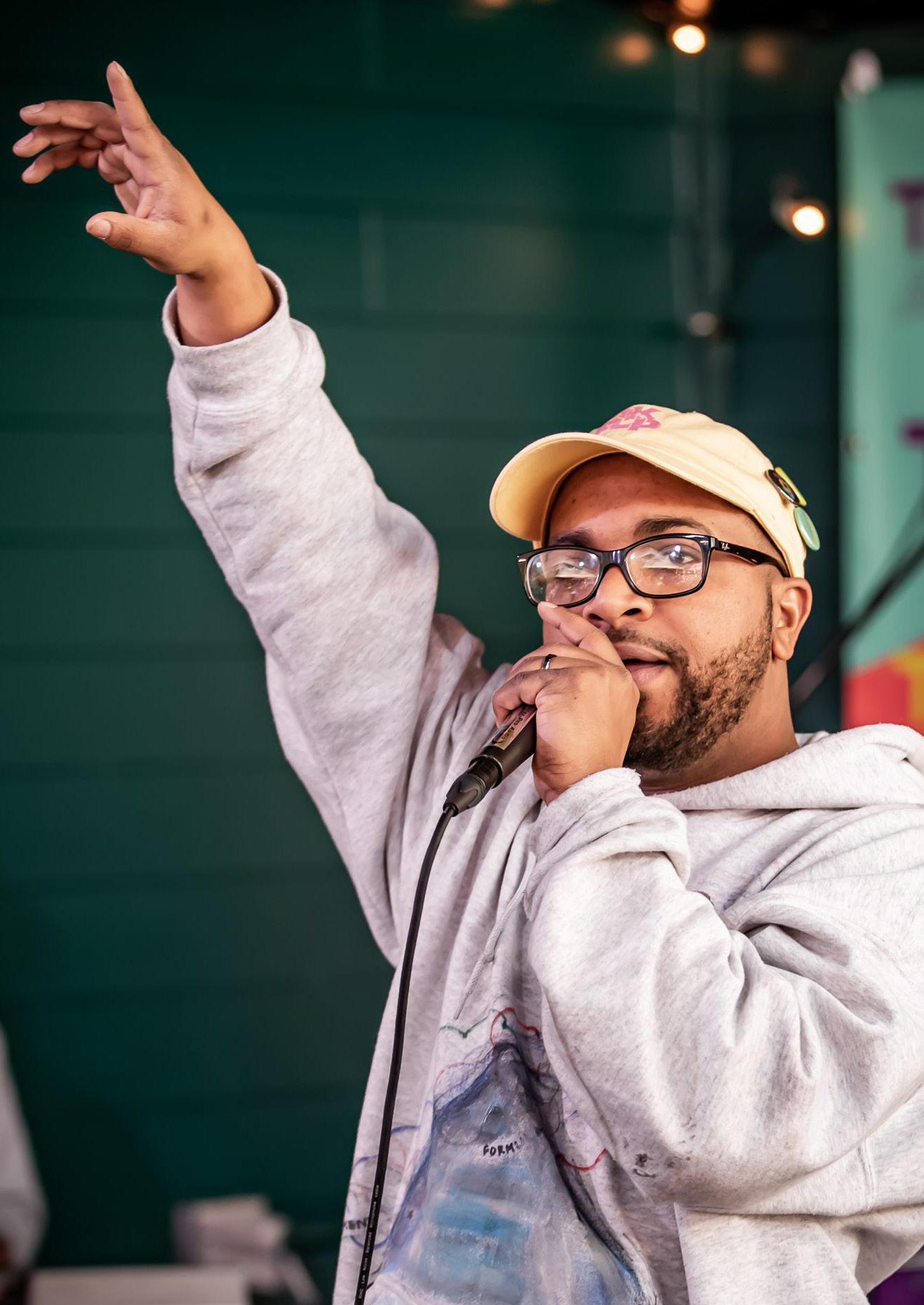TULSA MUSIC STRATEGY EXECUTIVE SUMMARY






When the Tulsa Office of Film, Music, Arts and Culture engaged Sound Diplomacy in 2018 to lead this study of your music ecosystem, we could not have imagined a global pandemic would disrupt the music industry impacting hundreds of thousands of jobs. In spite of all the change this year has brought, music has proven to be integral to our lives and wellbeing, affirming our identity as individuals and the communities we belong to.
Our research shows Tulsa is the biggest music economy in Oklahoma with the highest number of music establishments per capita, world-class music venues and a wealth of musical talent. But it is also in dire need of more progressive and music-focused policies to support the recovery of its music ecosystem, grow the sector’s value to the city and champion the professional development of its music artists. The strategy you are reading demonstrates music is a profitable asset for Tulsa and articulates what are the key investments needed to become a more resilient, diversified and equitable sector within the next five years.

Consider this your toolkit for recovery planning, securing resources and fostering partnerships to continue to ensure music is a leader in Tulsa's economic, social and cultural development. You have a wealth of musical talent and stories the world needs to hear about with the support of your generous community. Music will be core to attracting and retaining more artists, creative professionals and remote workers to continue making Tulsa a prosperous and inspiring city to live in.
We would like to thank everyone who has contributed to the study in any form for their time during one of the hardest times we have lived through. You have in your hands the most comprehensive music strategy in the region to date, and one of the newest and most forward-thinking plans to reactivate the local creative economy in the U.S. Thank you for welcoming us into your community, even if it could only be virtual. We are confident that the rest of the world will be captivated by Tulsa and its incredible artists.
Shain Shapiro, PhD Founder & CEO, Sound DiplomacyTo say we’re eager about this project for Tulsa and its music community is an understatement! The Tulsa Music Study and Strategy is many years in the making. When we first connected with Shain Shapiro of Sound Diplomacy in early 2018, we had one goal in mind: understand the impact music has on Tulsa’s economy. Since our initial conversation, it’s evolved to being much more than that.
Just like the Tulsa music scene, this study and strategy are diverse, inclusive, collaborative, and energetic. Our hope is this project sets the stage for years to come; leveraging historical data that leads to cementing Tulsa as a music city for the world. Executing this strategy will give us the opportunity to develop a fully established music industry within Tulsa. The Tulsa Music Study and Strategy is a roadmap for working together to create a sustainable and thriving industry ecosystem, recognizing music a key contributor to Tulsa’s diverse economy.
We all know how magical the Tulsa music scene is, but now more than ever, it’s important to focus on the factors that will keep our talented musicians here, our venues thriving, grow job opportunities, recruit music businesses, and support our local creative entrepreneurs.

We are grateful to Sound Diplomacy for being a leader in this realm, and for their entire team of brilliant minds that beautifully executed this project- thank you. We are very proud that Tulsa is the first city in Oklahoma to work with this international music firm, further showcasing Tulsa’s music scene to a global audience.
A special thanks to the George Kaiser Family Foundation for supporting this project. And thank you to our community partners: BOK Center/ASM-Tulsa, The Church Studios, Cain’s Ballroom, The Vanguard, The Mercury Lounge, Tulsa Symphony, The Closet Studios, and the Woody Guthrie Center.
And to the participants that contributed, thank you. You shared, engaged, and supported this important work for which we will all benefit.
Looking forward to continue the work with you.
Sound Diplomacy was hired by the Tulsa Office of Film, Music, Arts and Culture (FMAC) in January 2020 to lead a study of Tulsa’s music ecosystem.

This is the foremost study into the local music economy and the first to provide in-depth analysis and insight into the effects of music in the city. The scope of this study was to determine Tulsa’s music economic impact, organize stakeholder engagement and deliver a comprehensive implementation plan to further develop Tulsa’s
music offer. We performed an audit and gap analysis of existing infrastructure; identified areas of strategic investment; and opportunities for artist and industry incubation, leveraging local resources and assets. Additional research was also carried out to assess the short and long term effects, measures and precautions related to COVID-19.
Sound Diplomacy deployed its unique four-step methodological approach to deliver a comprehensive assessment of Tulsa’s music ecosystem.

We did regulatory desk research, consisting of a brief overview of existing (and absent) music policies and how they affect the music ecosystem and its sustainability.
We conducted a series of online conversations with +40 stakeholders between May and August 2020 and launched an online survey that targeted music fans, music industry professionals and musicians that are based in Tulsa (or engage in music activities there). It received 323 complete responses between July 8th and August 23rd, 2020.
Macroeconomic research based mainly on official, secondary sources and statistics, complemented by primary research conducted by Sound Diplomacy, enabled an in-depth study of the economic impact of the music ecosystem in Tulsa.
Based on the findings, and in close coordination with Tulsa FMAC, Sound Diplomacy developed an action plan for strengthening the health of the local music ecosystem over a five-year period. These recommendations are cross-referenced and affirmed by case studies and best practice guidance, and will lay the foundation to retain and attract music talent and businesses for Tulsa in the future.
Induced impact is created when the workers of the whole music ecosystem spend their wages on food, transportation, entertainment, etc. in their daily life.
The direct impact is the economic activity directly connected to the music ecosystem, such as musicians, agents and venues.
The indirect impact is supportive activity of the suppliers of the music ecosystem and is related to local businesses that provide goods and services, such as advertising, transportation and legal affairs.

All produced goods and services of the music ecosystem in Tulsa. For example, concert tickets sales, recording studios services, etc.
The music ecosystem output minus music ecosystem intermediate consumption (the costs of all inputs – for example, equipment rented by a live music promoter).
(8.5%)
PERCENTAGE OF THE TOTAL MUSIC ECOSYSTEM ESTABLISHMENTS IN OKLAHOMA, PER 10.000 INHABITANTS PER COUNTY, 20173 8.5%
Tulsa County is the region in Oklahoma with the most music establishments (3.9 music establishments per 10,000 inhabitants), surpassing Oklahoma County (3.1 establishments).
The economic impact analysis provides a reliable measure of the economic importance of the music ecosystem within the local economy on three different scales: direct, indirect and induced impacts.
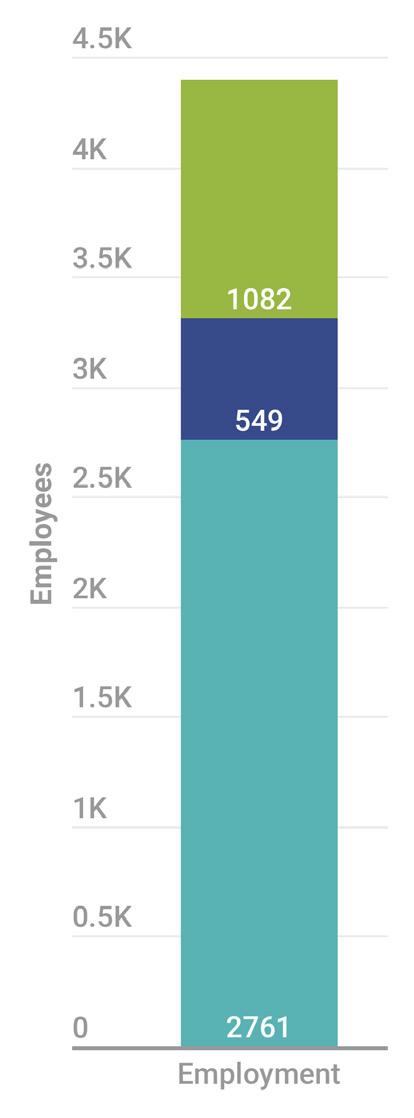

The Artistic & Creative Segment groups the artists, musicians, creators, and songwriters.4
The Professional & Support activities include music‑related businesses such as manufacturing, publishing and distribution, managers and agents, music venues, radio broadcasting, and music education.
Direct employment in Tulsa County’s music ecosystem grew four times faster than in the rest of the economy between 2004 and the end of 2018 (48% in music vs 11.44% in the rest of the economy).
Tulsa’s music ecosystem is responsible for generating a total output of $335 million, and a Value Added (GVA) of $198 million to the local economy annually.
The total number of jobs generated and supported by the music sector in the area is 4,392 (1.39% of employment in the county). These people’s earnings add to $156 million. Every $1,000 of output produced by the music sector indirectly support $379 of the output of other industries in the city and has an induced effect of $557 on other sectors.
MUSIC ECOSYSTEM DIRECT EMPLOYMENT & OUTPUT BY SEGMENT

Although Tulsa’s music output per capita is higher than the US average, it is one-third of the output of Austin and New York which have higher flows of music tourism and strongly consolidated industries.
MUSIC ECOSYSTEM TOTAL EMPLOYMENT, US CITIES

Tulsa’s music sector supports 1.4% of the county's employment, a rate above the national average contribution of music to local employment (1.3%). It supports three times more direct FTE jobs compared to agriculture‑related sectors in Tulsa County.
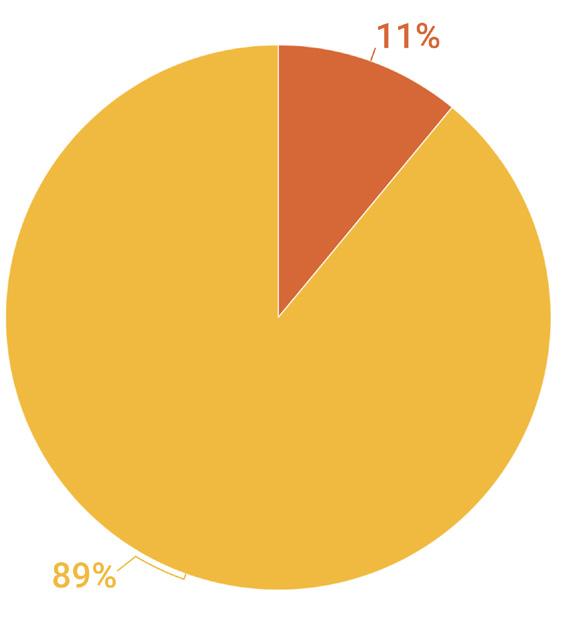


Source: County Business Patterns, Sound Diplomacy Research
Music employment Music employment contribution of total employment

All the mapped assets are visible, embeddable and shareable using Google Maps

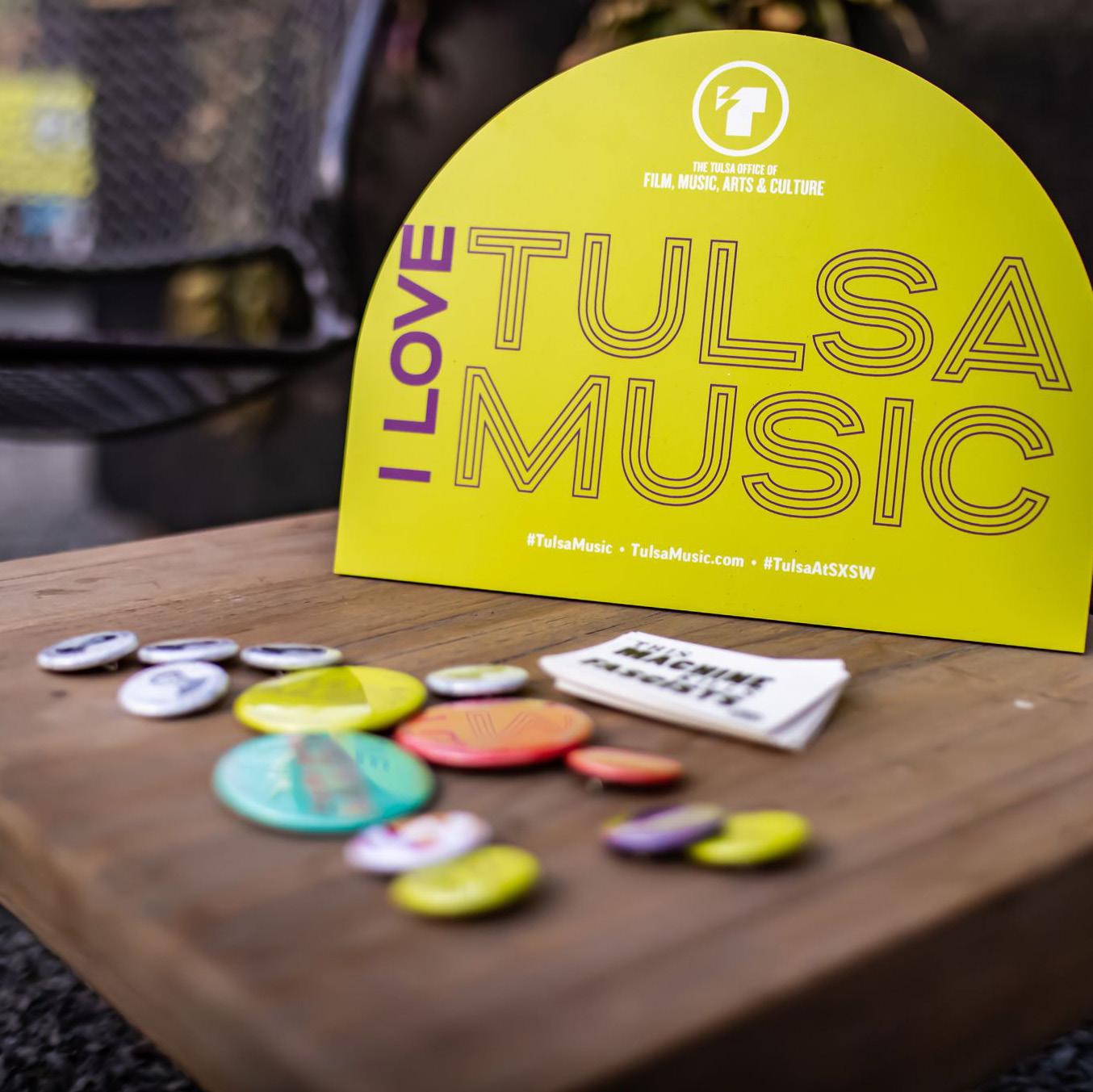
The findings below are compiled from our survey, interviews and roundtable sessions, as well as the findings from the ecosystem mapping:
• Vibrant music, arts, and culture community which is appreciated by local people as an economic driver
• Affordable city for artists and music industry professionals
• Sustained philanthropy towards music from organizations and individuals
• Tulsa is the music leader in Oklahoma with the most music ecosystem establishments and the only competitive drum corp
• Tulsa Chamber has dedicated resources to attract professionals of any industry to the city
• World‑class music venues and vibrant live music offer any day of the week, many of them for free
• Strong city support and investment for music‑related tourist attractions
• Tulsa FMAC leverages music as a tourism asset and supports the promotion of the local scene
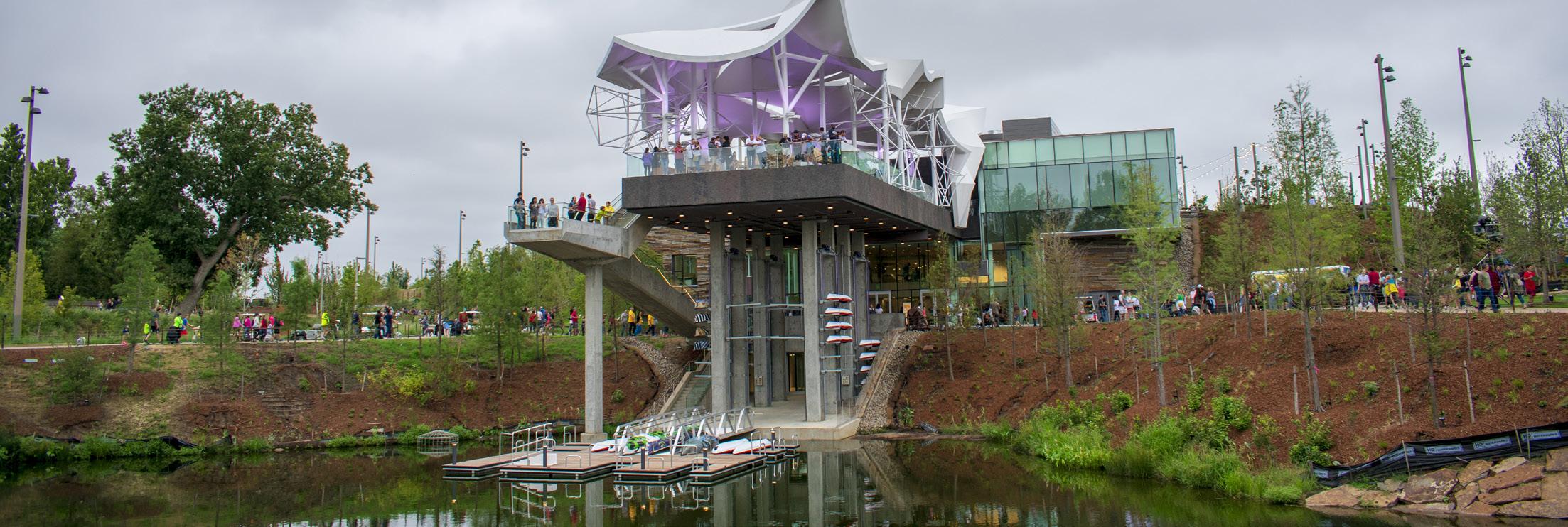
• The Oklahoma Film and Music Office provides information resources and incentives to the music sector
• Improved perception of Downtown Tulsa in the past 10 years
• Some education providers have introduced more non‑traditional music education programs for high school students: sound recording at Tulsa Tech, record label program at McClain High School.
• Small number of for‑profit companies contributing to the music ecosystem
• Poor economic diversification in the local music economy, based mainly on live music, which has been devastated during the COVID-19 health crisis Gaps in creative and industry development infrastructure for locals (e.g. professional recording studios, clustering spaces)
• Absence of dedicated music leadership at the city and state level
• Lack of music industry undergraduate and graduate degrees locally, limited music undergraduate degrees
• Scarce and uneven remuneration within the industry for local creatives and professionals
• Limited access to music business roles (e.g. managers, agents), currently being outsourced to industry workers outside of Tulsa
• Sparse presence of local music in local media and the public realm (e.g. busking)
• Regulatory gaps create an unsustainable music ecosystem (e.g. all-ages licensing, noise ordinance, planning)
• Uneven access to music education across public schools, mainly tied to athletic programs, school size and location
Long distance to cities with large populations, limiting touring and business development opportunities.
• Increased visibility of Tulsa in national media, including the Tulsa Race Massacre commemorations
• Expanding opportunities to monetize music globally (e.g. recording, licensing, sync, publishing, songwriting, scoring, audio post-production)
• Competition and increased cost of living in large cities in the US are encouraging the relocation/ return of music artists and professionals
• Businesses provide more opportunity for remote working across sectors, particularly in tech industries, which can potentially increase Tulsa’s music audience
• Increased national advocacy for music rights and industry support, particularly during COVID-19 and for social causes
• Growing music communities nearby can foster inter regional synergies (Northwest Arkansas, Southwest Missouri)
• Music placemaking can activate vacant spaces and the public realm complying with social distancing.
• Uncertainty of the impacts of COVID‑19 on the music sector in the medium- and long-term, including music tourism
• Increased development and density in Tulsa’s urban core threatens the sustainability of music spaces with the current regulations
• Access to traditional forms of finance (i.e. bank loans) is a major challenge for music entrepreneurs due to a perception of the music industry as a high-risk investment
• Appeal of other mid‑sized cities near Tulsa for career development (e.g. Oklahoma City for music-related college degrees, Nashville for music industry)
• Tulsa’s economy and philanthropy relies on the energy sector which is susceptible to oil price fluctuations
• Ageing demographic targeted by Tulsa’s music branding and tourism assets (i.e. heritage, museums, casinos).
Tulsa FMAC and Oklahoma Film and Music Office support the creative industries, but there is no dedicated music leadership at the local or state level.
Current liquor licensing restricts audience development for persons under 21 years of age. There is no license available for all-age performance spaces.
Nashville’s Music City Music Council is a collaboration between the Mayor’s Office, Chamber of Commerce and Convention & Visitors Corp. Its focus is economic development, working to expand local business while attracting new businesses.
Milwaukee amended in 2019 its restrictive city codes to make it possible for venues to host all-ages shows and simultaneously serve alcohol to patrons 21 and over.
No designated artist parking near music venues. Austin, Seattle and Nashville all have artist loading and unloading zones.
No Agent of Change principle or similar policy to protect new and existing music venues from property development changes.
Noise laws are imprecise with dB limits only provided for special events. Bars and restaurants must abide by specific sound limits only if they are located on lots abutting a residential zoned lot.
There are 8 unique districts within Downtown Tulsa including Tulsa Arts District, but there is no designated Entertainment District defined through special policy.
No formal organization for musicians and industry professionals in Tulsa to advocate for standard pay, with national efforts focusing on orchestral, musical theatre and opera sectors.
London, San Francisco and the Australian state of Victoria have forms of the Agent of Change principle.
The noise ordinance in Austin establishes clear dB limits and curfews in the designated Entertainment Districts. They have pioneered a curfew extension for music venues in their Red River Entertainment District.
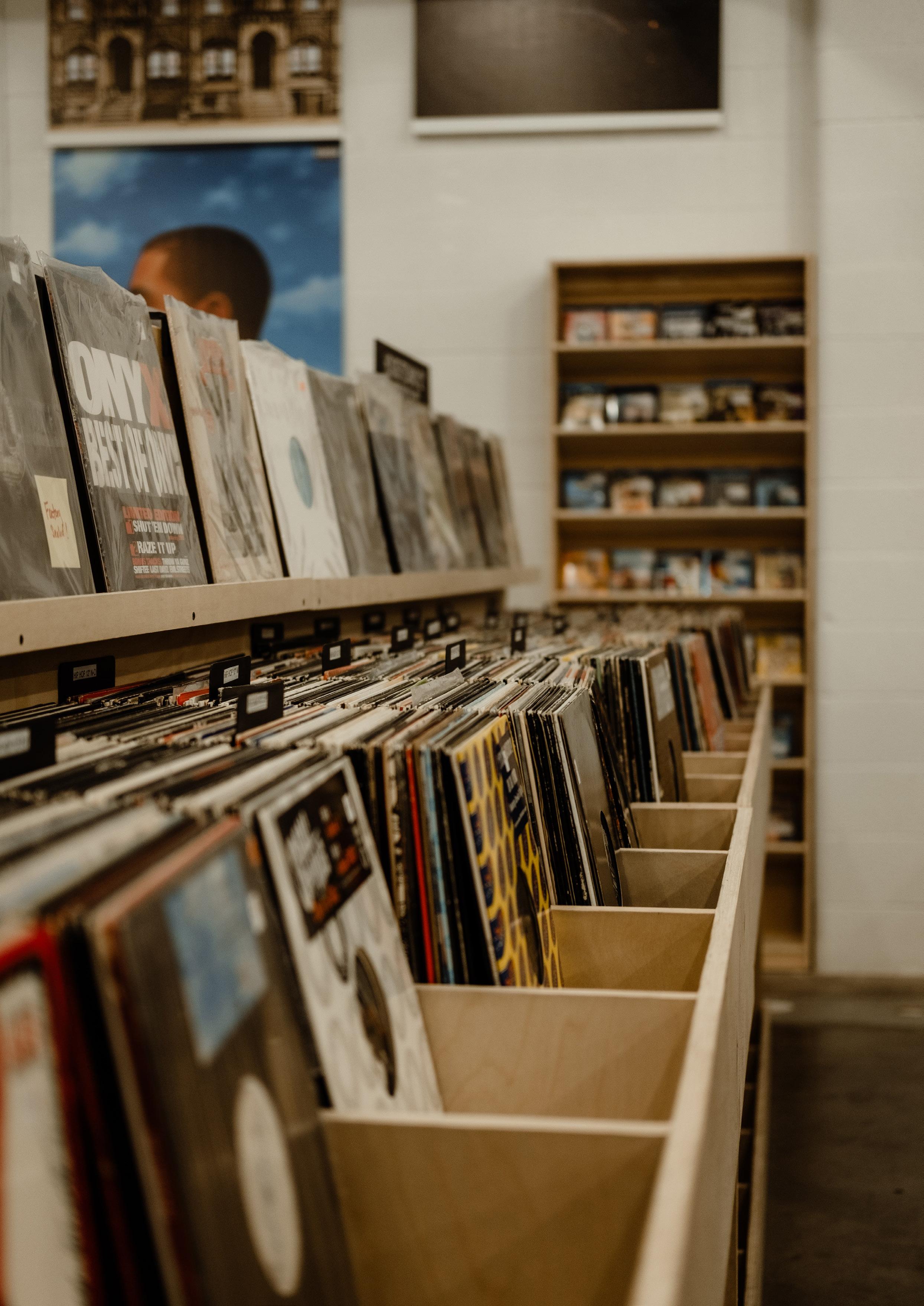
Austin has 6 entertainment districts, each with unique laws regarding extended curfews for live music outdoors.
Musicians Union UK’s Fair Play scheme could be applied to all Tulsa venues.


The action plan outlined below will help define Tulsa as a leader in the global music cities movement within the next five years.
This will be achieved through the following objectives:
• Strengthen and capitalize on the reputation of Tulsa as a music place to drive music-related tourism;
• Embrace and promote genre and talent diversity in music while honoring the roots and legacy of the Tulsa Sound;
• Increase music export through a combination of public and private support and foster deliberate collaborations with the film, TV, and digital media sectors;
• Increase resilience and equity within the Tulsa music ecosystem;
• Include music and culture in local governance structures, strategic economic recovery plans, and urban planning efforts;
• Secure equitable investment in music at all levels and for all genres;
• Ensure the participation of everyone in the music ecosystem regardless of their gender expression, ethnic identification, sexual orientation, socioeconomic background, or disability status;
• Rebuild and rethink the economic foundation of Tulsa’s music ecosystem to diversify the industry, based on the needs and opportunities identified in this study;
• Lead with best practices in remuneration, incentivization, and access to finance mechanisms to grow the number of local full-time jobs in music;
• Leverage existing music infrastructure and resources for professional development to help attract and retain music talent and industry.
These actions have been expanded upon in the extended Tulsa Music Strategy, which details how to implement each one, the perceived benefits and suggested partnerships. Each action has been given a timeframe according to priority and capacity of the suggested partners, indicating when they would be best suited for implementation. They are arranged across four action areas and address the key findings from all the research phases:6
3.
Sound Diplomacy would like to thank every individual who participated in the research, shared information, responded to the survey and spread the word about the study. Your participation and input have been invaluable and this work could not have been done without you. Thank you.
Sound Diplomacy is the leading global consultancy advising cities, governments, tourism boards and large organizations on music and night time economy policy. Their work has helped define the ‘music cities movement’ and been delivered in over 20 countries and 50 cities around the world. www.sounddiplomacy.com

The mission of the Tulsa Office of Film, Music, Arts & Culture (Tulsa FMAC) is to develop and connect resources to further grow and enhance northeast Oklahoma’s creative industries, including film, music and the arts, all while promoting Tulsa as a creative hub and cultural destination. Our main focus is to highlight Tulsa’s creative industries to the world, so they continue to grow and flourish. Tulsa’s creative community supports one another, creates together, and shares ideas and resources. It is a place to incubate ideas before hatching them at South by Southwest or Sundance Film Festival. Tulsa FMAC administers Play Tulsa Music, the Tulsa County Film Recovery Program, and the Tulsa Creativity Database. Tulsa FMAC is housed under Tulsa Regional Tourism at the Tulsa Regional Chamber. www.tulsafmac.com
WE ARE GRATEFUL TO THE SUPPORTER OF THIS PROJECT
